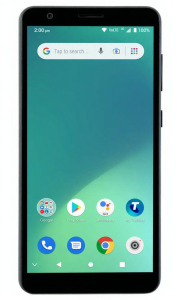
fintech app development company
Digital technology is reshaping every industry, and the insurance sector is no exception.
Mobile applications and disruptive technologies have emerged as the most powerful tools for transforming how insurance companies interact with customers and manage their operations, such as policy management and claim processing.
This blog explores the significant impact of mobile applications and technology on the insurance sector, its benefits, key features, technology considerations, future trends, and more.
Why Insurance companies need innovation
Traditional insurance companies often struggle due to manual processes and outdated systems.
Leveraging disruptive technologies, like AI, machine learning, and data analytics through mobile applications, not only solve these challenges but also maximize efficiency, productivity, and customer satisfaction in a better way.
With the advancement of technology and continuously increasing customer expectations, modern customers are already used to buying and managing everything with their smartphones—and insurance products are no different.
According to the Pew Research Center, 85% of Americans currently own a smartphone, while Statista found that approximately half of its survey participants spend five to six hours daily on their phones.
Mobile applications and disruptive technologies help insurance companies in many ways. They can streamline workflow, enhance risk assessment and fraud detection, ensure robust cybersecurity and regulatory compliance, and drive innovation with new products and services. They can also help to reduce paperwork and complex processes and maximize customer satisfaction.
To stay ahead in this competitive edge, embrace changing market demand with innovative fintech applications. Let’s explore the benefits of having a mobile application for insurance companies and understand the cost of developing an AI-enabled FinTech app.
Benefits of Insurance Mobile Application
Insurance mobile applications offer various benefits to both insurers and policyholders. A mobile application lets customers easily manage their insurance policies, submit claims, and make payments anytime. This process fosters customer satisfaction and loyalty.
On the other hand, insurance companies can automate their entire business process by utilizing a mobile insurance application. This accessibility improves data analytics for better risk assessment and empowers insurers to deliver personalized services based on customer preferences.
1. Automate Business Process
Modern digital platforms streamline and simplify all business processes through automation. Many innovative applications offer the opportunity to automate processes such as taking orders, processing bills, collecting payments, etc.
2. Personalized Service
By leveraging mobile applications, insurance companies can deliver personalized services based on the data received, ensuring improved customer retention and loyalty.
3. Increase Revenue
Integrating mobile applications into the work process can simplify expensive and cumbersome processes, saving time and money.
In addition, exceptional mobile applications coupled with great service can enhance competitive advantage by improving customer retention and loyalty.
Types of Insurance Apps
1. Business Insurance Apps
Business insurance app development can protect users’ business investments. The application helps you in,
- Select the right insurance package according to their business size & nature of risk.
- Get instant claims for losses and fraud by easily uploading your documents.
- Minimize the loss by promptly settling insured events.
2. Health Insurance Apps
The health insurance application is designed to provide complete information about health insurance, such as health insurance coverage, sum-insured, renewal reminders, and details of the network hospital, along with geotagging on Google Maps. The application enables users in,
- Book appointments in real-time
- Choose their preferred doctors
- Search for appropriate health plans
- Compare prices across multiple pharmacies and clinics
- Choose insurance that covers various medical disciplines
- Access documents and complete formalities online.
3. Vehicle Insurance Apps
Vehicle insurance applications serve as a digital lifeline for users who met with an accident and seek to claim their assets. The application enables users in,
- Access documents with ease
- File an asset claim on the spot
- Get a repair estimate.
- Upload real-time images of the accident site.
- Upload relevant data, such as police reports, videos, and images.
4. Property Insurance Apps
Property insurance applications enable users to insure their property, jewelry, and other valuable assets. The application allows you to,
- Choose an appropriate policy
- File claim at the right time
- Receive regular reminders on property maintenance
- Track the property for damages
Key Features of Insurance Mobile Application
The effectiveness of insurance mobile apps hinges on their functionality and user experience. The key features of insurance apps are intuitive claims submission, secure document storage, intuitive claims submission, policy management capabilities, tracking functionalities and retrieval, seamless premium payment options, and more.
The integration of disruptive technology like AI-driven chatbots, machine learning, and big data helps to provide prompt support to customers at all times.
Key Features of Insurance Mobile Application
- Personalized Insurance Recommendations
- Admin Panel
- Real-Time Policy Management
- Quote & Filters
- Automated Claims Processing
- Payment Gateway
- 24/7 Virtual Assistance
- Push Notifications
- Document Upload/Storage
How to Develop an Insurance Mobile App for Your Business
Before embracing insurance mobile application development, select iOS and Android platforms, stack-tech, and backend systems like Customer Relationship Management (CRM) and Enterprise Resource Planning (ERP) systems. Data security, such as data encryption and compliance with regulatory standards, must be integrated into an insurance mobile application to protect sensitive customer information.
1. Planning
At this stage, insurance companies undergo a thorough analysis to define the insurance mobile application development process. The fintech app development company outlines various activities, such as setting milestones, planning app features, selecting technologies, etc. This process ensures to create a detailed project plans aligned with the business objectives, such as
Key processes in the discovery phase
- Market analysis
- Competitor analysis
- Cost analysis
2. Designing
It’s time to design an insurance app, including its UI, UX, and overall functionalities. Start with a design prototype that adjusts user flows and is an elevator pitch for investors. The blueprint developed during the discovery phase informs technical requirements and business concepts. The UI/UX design phase delivers:
- UX wireframe
- UI designs for app screens
- Clickable working app design
- Collaborative design file
3. Development & Testing
During the development and testing phase, the UI/UX design is transformed into a functional mobile app by collaborating with back-end and front-end developers. When you hire app developers in India, they take care of every step to ensure timely delivery and adherence to guidelines.
4. Deployment and Maintenance
The next step of the development process is to launch the platform on both Apple App Store and Google Play. It is crucial to prioritize user feedback immediately after the product launch. By studying and applying users’ feedback, you can ensure rapid improvements and updates when necessary.
The main aim is to increase the number of users, as this will lead to more feedback, which will ultimately improve the quality of our platform and insurance offerings. Continual feedback will be used to address complaints and suggestions to enhance our product.
Final Word
Integrating mobile applications and disruptive technologies reshapes the insurance industry, enhancing operational efficiency, customer satisfaction, and overall competitiveness. By embracing innovation and leveraging digital solutions, insurers, with the support of a mobile app development company in India, can meet the evolving demands of today’s consumers while driving sustainable growth and delivering exceptional value in the digital age.






